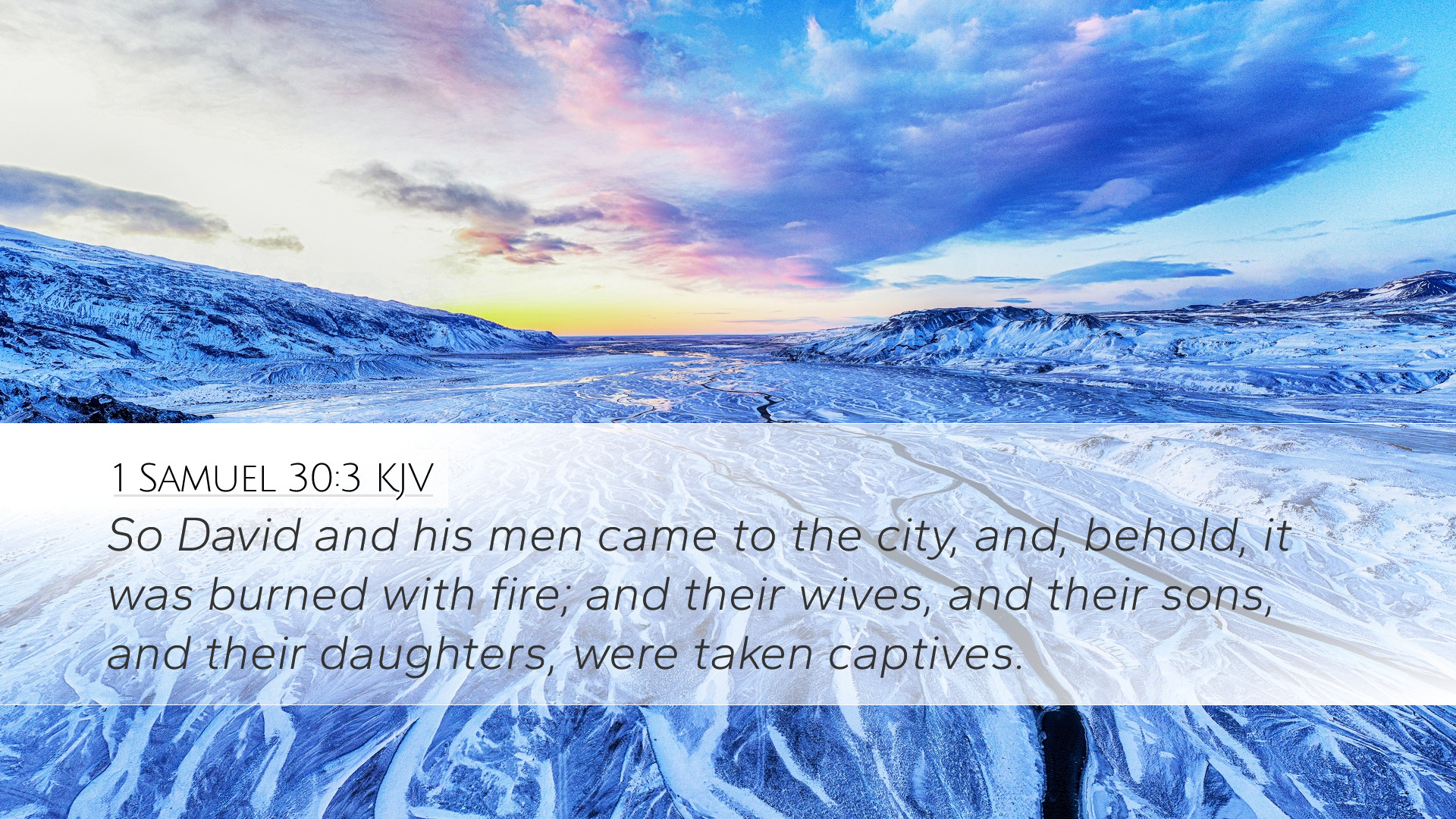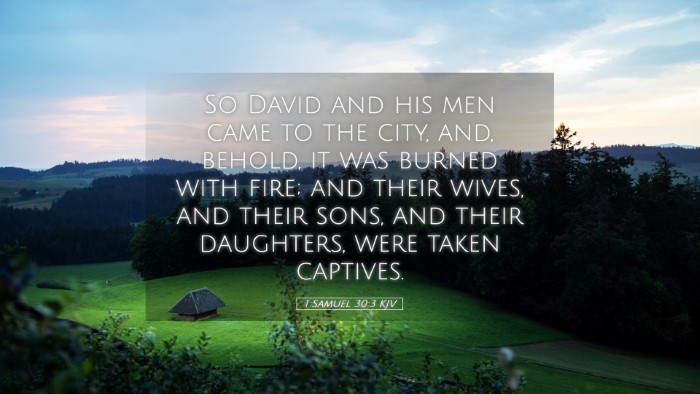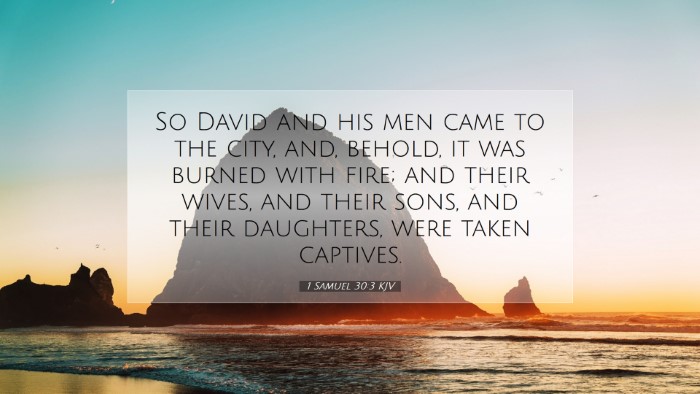Commentary on 1 Samuel 30:3
Verse Context and Significance: 1 Samuel 30:3 states, "So David and his men came to the city, and behold, it was burned with fire; and their wives, and their sons, and their daughters were taken captive." This verse marks a pivotal moment in David's life, capturing the devastation he and his men faced when they returned to Ziklag after a military campaign. The heavy emotional weight of this event serves as a backdrop for understanding the resilience and leadership qualities of David, as well as the deeper theological implications of suffering and divine providence.
Insights from Matthew Henry:
Matthew Henry emphasizes the distressing condition of David and his men upon their return. He notes:
- The Shock of Loss: Henry points out that the men experienced a devastating shock, which illustrates the fragility of their situation. Their loss was not just material but deeply personal, encompassing their families and livelihoods.
- God's Sovereign Timing: This event highlights God's sovereign control over circumstances, as David's earlier challenges and current suffering prepare him for future leadership roles.
- Union of Humanity in Grief: Henry reflects on the community aspect of grief. David’s men wept until they could weep no more, showcasing their shared sorrow and the necessity of support in times of communal disaster.
Insights from Albert Barnes:
Albert Barnes provides a comprehensive understanding of the broader implications of this event:
- The Reality of Warfare: Barnes discusses the harsh realities of warfare during biblical times, emphasizing the vulnerabilities faced by those engaged in conflict. The attack on Ziklag serves as a reminder of the ever-present dangers that God's people encounter.
- Desperation Leading to Betrayal: He notes that the emotional state of the men, filled with grief, led to feelings of betrayal and the desire for blame, particularly directed towards David.
- Opportunity for Divine Guidance: Barnes highlights that amid despair, this situation opened the door for seeking God's guidance, which ultimately led to restoration.
Insights from Adam Clarke:
Adam Clarke approaches this verse with a focus on the psychological and theological ramifications of loss:
- Understanding of Loss: Clarke emphasizes the profound impact of loss on David and his men, not only in their personal lives but also in their mission as warriors of God.
- Role of Leadership in Crisis: He notes that David’s response to this crisis was critical. It served as a test that would forge his character as a leader and a king, setting the stage for his future reign.
- Encouragement through Faith: Clarke urges readers to see the necessity of faith during moments of despair. David’s trajectory from mourning to seeking refuge in God demonstrates resilience and reliance on divine strength.
Theological Reflections:
This verse invites reflection on several key theological themes:
- Suffering and Divine Providence: The destruction of Ziklag and the capture of David's family serves to illustrate the mystery of suffering within God’s sovereign plan, challenging believers to trust amid trials.
- Community and Shared Suffering: The collective grief experienced by David and his men underscores the importance of community in facing hardship together, promoting unity and support amongst believers.
- Leadership through Adversity: David’s eventual recovery from despair reflects the qualities of a godly leader—one who seeks the Lord in times of crisis and learns to lead others through adversity.
Application for Pastors and Theologians:
This passage speaks volumes to contemporary leaders and scholars:
- Encouragement in Crisis: It serves as a reminder to pastoral leaders about the importance of seeking divine direction during moments of communal grief.
- Empathy in Ministry: The shared sorrow of David and his men can inform pastoral care approaches, emphasizing the need to walk alongside those who suffer.
- Preparation for Leadership: Future leaders may draw from David’s response to adversity, utilizing these lessons in their own callings.


